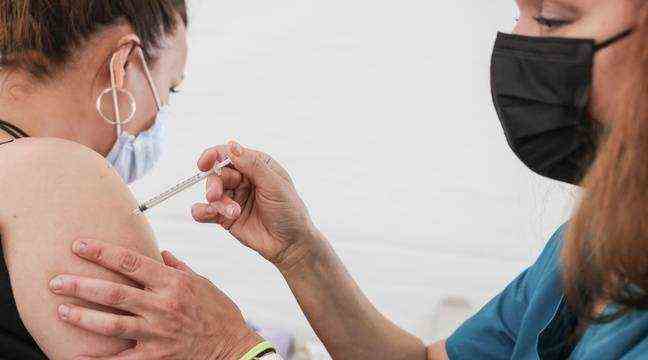Would they be irresponsible or selfish, while they work every day at the bedside of the most fragile? The current debate on the compulsory vaccination of caregivers raises many questions. Olivier Véran received this Wednesday afternoon officials from the world of skincare, to discuss this track.
But how can this distrust of anti-Covid-19 vaccines be explained? Far from preconceptions, 20 minutes asked researchers and doctors to see more clearly.
Very variable vaccine hesitation
Difficult to obtain precise figures of the vaccination coverage of caregivers. It would be around 70%, all professions combined. But in detail, the differences between professions and mode of practice are impressive: 89.9% of private caregivers have received at least one dose, against 59.3% of professionals in nursing homes. “Among doctors, the bar of 80% set by Olivier Véran has been reached! », Adds Jean-Marcel Mourgues, vice-president of
National Council of the Order of Physicians. Which is not surprising. Maud Gelly and Alexis Spire, sociologists at
CNRS, worked on the report of professionals from a hospital in the Grand Est to vaccination. “For the flu as for the Covid-19, doctors are vaccinated more than nurses, themselves more vaccinated than nursing assistants,” said Maud Gelly.
Caregivers with rather different social characteristics and working conditions. “The orderlies and nurses are overwhelmingly women,” recalls Maud Gelly. However, social class and gender are determinants of vaccine hesitation, and preventive practices more broadly (diet, physical activity, etc.). It would therefore be wrong to confuse all the caregivers, and more broadly all the agents who work in the care.
Also watch out for the cliché of obscurantist or ignorant health professionals… “Contrary to what we hear, we cannot speak of an antivax, continues Maud Gelly. We conducted 80 interviews and no agent testified to an opposition to the very principle of vaccination. The nurses and nursing assistants have all had their children vaccinated, including with non-compulsory vaccines. ”So what are the reservations? “It is not out of selfishness or neglect that they do not get vaccinated,” she insists. They include vaccination as one preventive measure among others. And they use the other barrier gestures: the mask, the gel… ”
Fear of side effects
Judith Mueller, epidemiologist at theSchool of Advanced Studies in Public Health (EHESP) and researcher at the Institut Pasteur, worked with
Geres association in December 2020 and January 2021 on the vaccine hesitancy of caregivers in France. And identified several areas that may influence the vaccine intention against Covid-19, without necessarily being the cause. First of all, the impression that Covid-19 does not represent an imminent risk while the decline in messenger RNA vaccines (the only ones recommended in France for those under 55) remains limited. “They were wondering, ‘Is this worth it for me?’ With fear of serious events following vaccination. “
The study by Maud Gelly and Alexis Spire corroborates this fear: “The hospital staff take care of patients on a daily basis who have suffered side effects from drugs, sometimes unknown at the time of marketing, underlines Maud Gelly. Their reasons are scientific reasoning. “
However, these messenger RNA vaccines are very effective and safe. A speech which, undoubtedly, did not reach this target. “For other rare vaccines with scientifically confirmed serious side effects, the signals were identified within weeks, maximum six months after vaccination,” continues Judith Mueller. This period has been passed for the messenger RNA vaccines. When we look at the biological mechanism, the injected substances quickly disappear from the body. The fear that this changes the genome, causes cancer, infertility, is not justified given these mechanisms. “. But this fear is very common among young nurses. “On the other hand, the fact that vaccination prevents contamination, including towards their relatives, is underestimated by some caregivers. “
A lack of communication
Did the government lack pedagogy? “We have not provided the necessary details to reassure”, regrets Emmanuel Hirsch, professor of medical ethics. For whom to constrain rather than to convince would be the sign of a “defeat which demonstrates the crisis of credibility which affects the authorities”. For him, the government was also lacking in anticipation. “Have we been careful in announcing a return to normal?” We see the threat abruptly resurfacing and the only urgent response is vaccination. We panic, we feel guilty, while only yesterday, we were told “have a good vacation!” “
Worse, politicians would have discredited scientific discourse. “The president was mocking and flippant in January towards the experts who warned about a third wave. I spoke with doctors who tried to convince their teams to get vaccinated. Their speech does not appear admissible: there is doubt about any prescription, any restrictive strategy and vis-à-vis expertise. He believes that a real public debate, with a consultation on the Internet, as for the States General of Bioethics, would have made it possible to defuse certain fears and fight against untruths.
A link between vaccination and working conditions
Admittedly, mistrust of these vaccines is not the prerogative of caregivers. But what sets them apart is that they associate this vaccination with work. Indeed, “the vaccination of a caregiver is part of the relationship with the employer,” notes Judith Mueller. Hence a link between the vision of his working conditions and vaccination. Some explain: “If my employer encourages me to be vaccinated, that does not encourage me, even it dissuades me. Am I obeying? Am I adding this effort?” “
A reluctance that questions at the time, therefore, of a possible vaccine obligation. Because several recent surveys, as well as the multiple resignations of recent months, reveal a great disenchantment in public hospitals. “Nurses and nursing aides have no control over their working conditions, they are reassigned to a service in the event of absence and called back on their days off,” Maud Gelly list. If the
Health Segur raised their monthly salary by 180 euros, working conditions have not improved. And nursing homes, like hospitals, are still struggling to recruit… and to keep teams.

